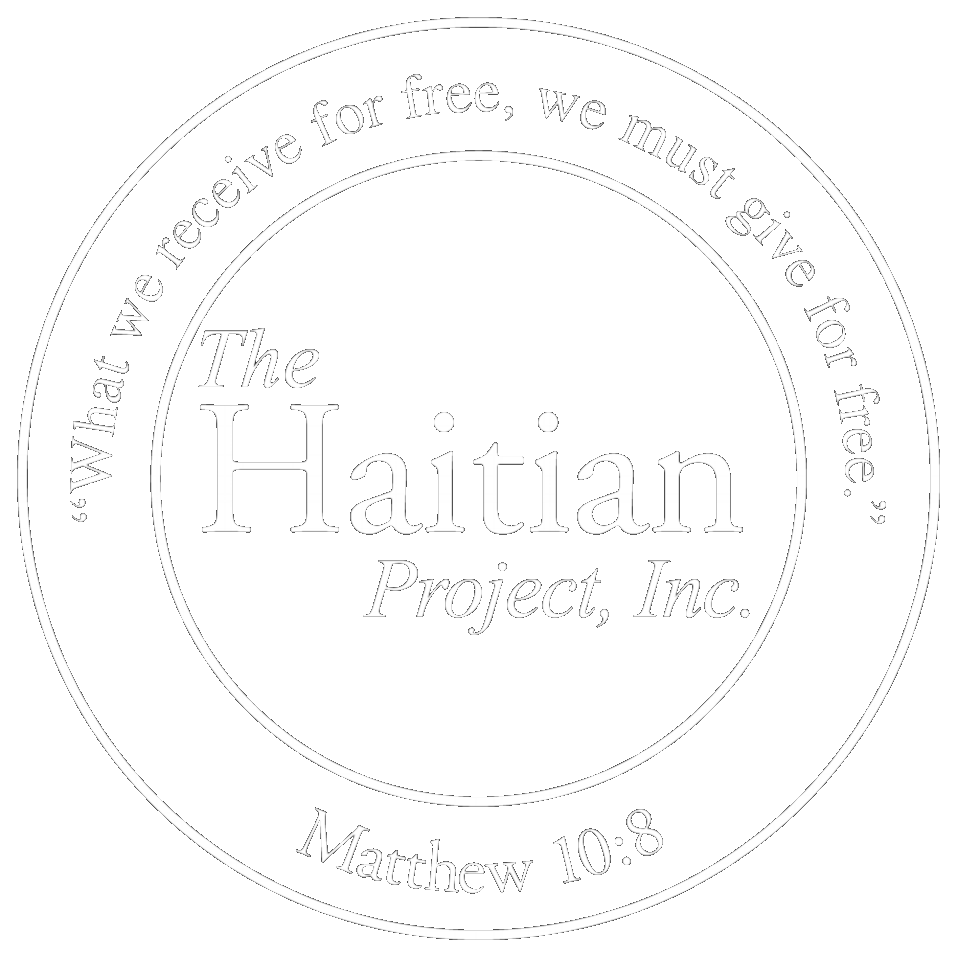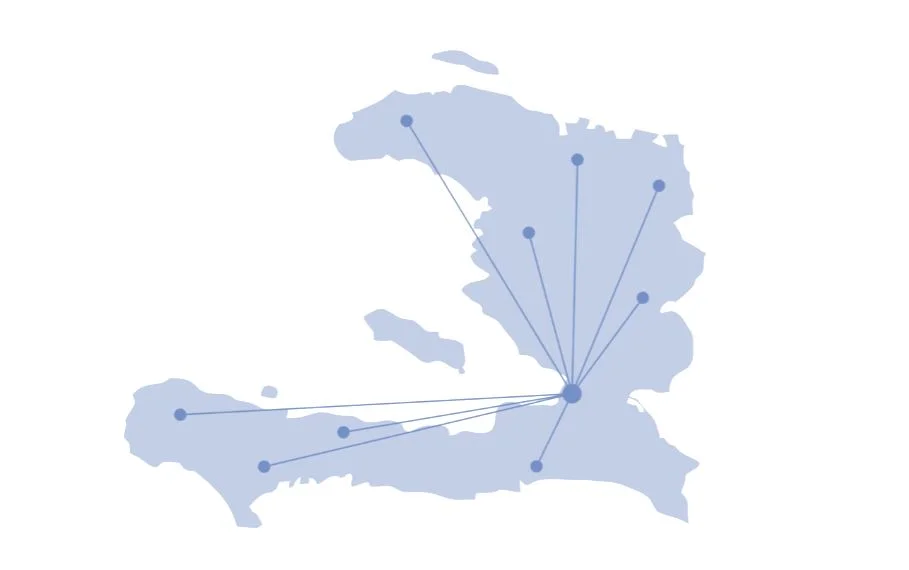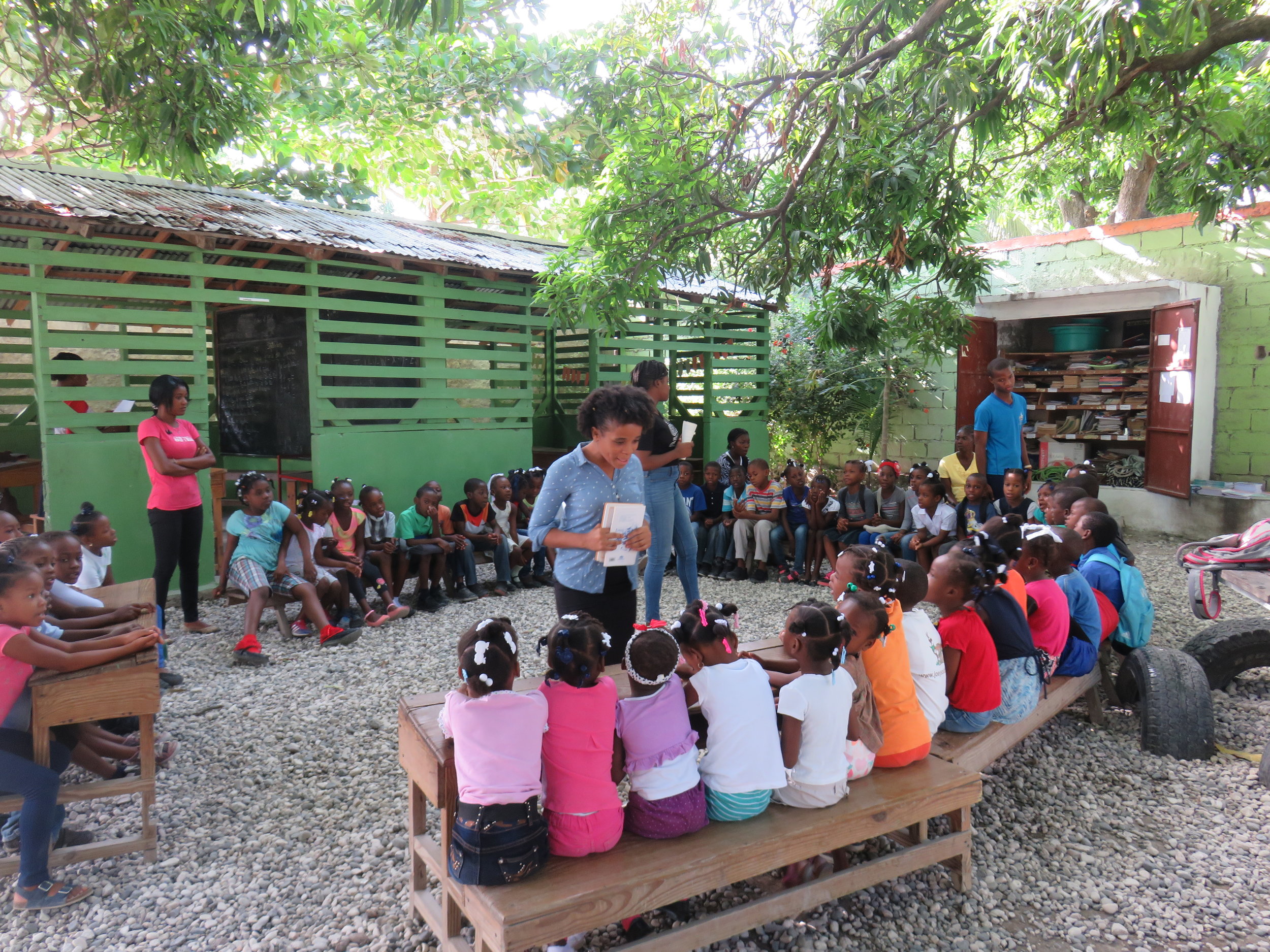Children from the neighborhood gather for early education from THP’s early childhood development program, “Koukouy.”
Yesterday, a Reuters article appeared online outing the fact that orphanages in developing countries are far more suspect than most would assume. I cannot speak to the global nature of the problem; however, I can confirm from personal experience that what is revealed by this article is true in Haiti.
Since 1996, I have been the head of The Haitian Project (THP), which funds and oversees a tuition-free, Catholic, co-ed, secondary boarding school called Louverture Cleary School outside of Port-au-Prince in Haiti. (THP also provides university scholarships to the graduates of Louverture Cleary School. 90 percent of our graduates have remained in Haiti where they have professional careers as teachers, doctors, accountants, nurses and even formal-sector business owners.) During my more than two decades with THP, my family and I have lived in Haiti more than half the time.
In a nutshell, I can confirm each point made in the Reuters article from personal experience. Most, if not nearly all, children in orphanages have at least one living parent. (The one exception I know to this would be the Missionaries of Charity facilities.) Orphanages in Haiti are largely unlicensed. Children rotate in and out of the orphanages in a crippling cycle of familial abandonment and institutional neglect. The number of orphanages did increase dramatically after the earthquake. And, yes, the funding is staggering and ongoing.
On the point of multiplying after the earthquake, I saw with my own eyes children disappear from the neighborhood around our school in the weeks following the disaster. They were seduced out of parents’ hands by “start-up” orphanage opportunists with the promise of care, education and adoption.
To give credit where it is more than due, it was my wife, Christina, who made me face this heinous reality and react. Just weeks after the earthquake, having just settled our family back in Haiti, Christina prodded me like the old widow after the corrupt judge to have us do something as an institution. Personally, she had already started working with the neighborhood parents to gather back the children from our neighborhood.
Even more impressive to me than Christina’s courage in this matter is how she so easily seized on the solution—an early childhood development center staffed by a combination of full-time staff and Louverture Cleary students who volunteered as teachers and mentors. On top of this, she created an elementary school scholarship fund. She used this service, which solved the desire of neighborhood parents to find education for their kids and the practical need to occupy them while they (mostly mothers) worked in the market, to encourage parents to take their children back from the ad hoc orphanages that had popped up.
Beyond the Holy Spirit, I am confident that Christina’s vision to create an early childhood development center came from three sources: her training as an elementary school educator, her own motherhood, and the collegiality she had established with the women of our neighborhood—the very mothers whose children had been pied-piped away by the false promise of care and education.
Christina had the help of two excellent recent college grads serving in our Volunteer teacher program, Kristen (Zeiler) Brunson and Rebecca (Finney) Fernandes, who spent two years each helping her to develop what is now called the Koukouy (firefly) program. Together, they trained an exceptional Haitian staff of professionals and para-professionals to carry on the work. I am also proud that my daughter, Marianna, spent many hours teaching in this program before leaving Louverture Cleary and Haiti for college at fourteen.
On top of the wonderful outcome of keeping families together, the Koukouy program has enabled children who would have been lost to end up as college graduates instead. I am certain that the children that have come to Louverture Cleary from Christina’s program would have never made it into elementary school, let alone end up professionals working in Haiti. Not only does this mean that they avoided the abuse and pain reported by Reuters and documented by the Lumos Foundation, but that their children will never come close to it.



